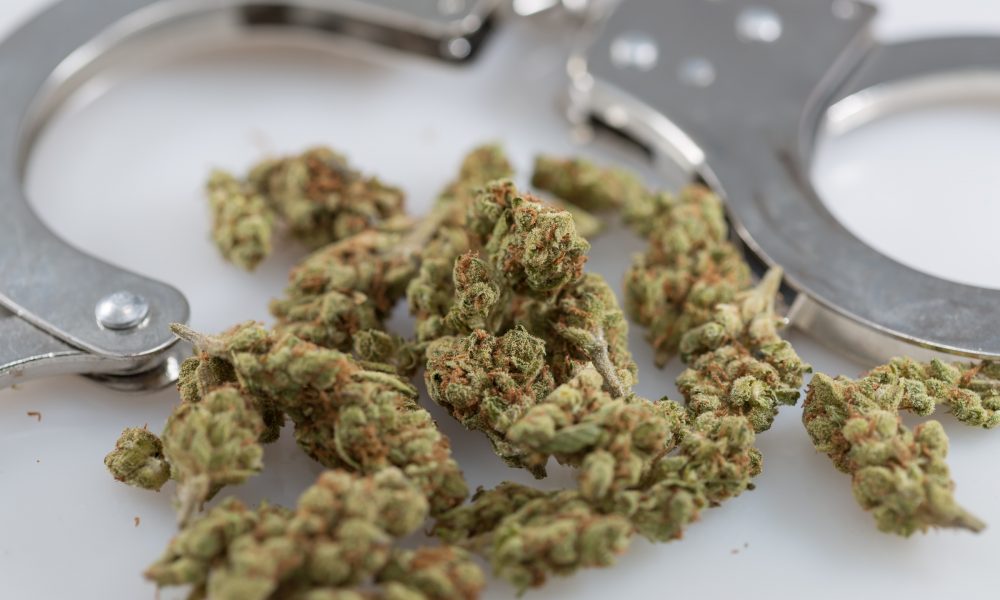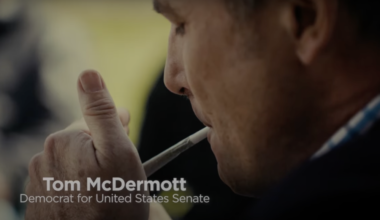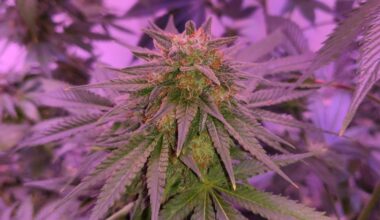Texas activists announced on Wednesday that they’ve collected more than enough signatures to qualify a marijuana decriminalization initiative for the local ballot in San Marcos.
This is the latest development in an activist-led push that’s seen Austin voters approve the cannabis policy change in the state’s capital last month and signatures submitted to qualify similar decriminalization measures for local ballots in November in three additional cities in recent weeks.
Now, advocates with the progressive group Ground Game Texas, as well as the criminal justice reform organization Mano Amiga, say they’ve collected more than 10,000 signatures to place the issue before San Marcos voters during the upcoming midterm election.
The campaign already pre-verified 4,500 of those signatures, so they’re especially confident it will qualify because that exceeds the 4,182 valid signatures they need to make the cut.
We now look to City Council to ensure San Martians, in a true democratic fashion, have the opportunity to approve the Reeferendum at the ballot box in November.
This is another clear demonstration that when we organize, we win.
See y’all tomorrow!
— Mano Amiga SMTX (@ManoAmigaSM) May 31, 2022
“For too long, San Marcos residents have faced the undue burden of legal troubles, financial hardship, and even incarceration for low-level marijuana offenses,” Julie Oliver, executive director of Ground Game Texas, said in a press release. “Ground Game Texas and Mano Amiga are proud to give voters in San Marcos the opportunity to reform local marijuana laws on the November ballot.”
This is a continuation of an activist-led effort to enact cannabis policy reform one city at a time since there is no process for citizens to put initiatives on the statewide ballot.
Sam Benavides, communications director with Mano Amiga, said that the organization “has been overwhelmed with the amount of community members and local businesses that helped make this the biggest ballot initiative this city has ever seen.”
“We’re thrilled to have something on the ballot that young people will be excited to vote on, thus drastically increasing voter turnout and civic engagement,” Benavides said.
City officials will need to formally authorize that the signatures are valid to ensure that the measure reaches the ballot.
City Councilmember Alyssa Garza also weighed in on the ballot initiative, saying that “clearly, a substantial portion of the San Marcos electorate has spoken and it is now the duty of City Council to afford voters the opportunity to approve it at the ballot box in November.”
“This is true democracy from the ground up, and I’m here for it,” she said.
Austin voters overwhelmingly approved a ballot measure to decriminalize marijuana, in addition to banning no-knock warrants by police, at the local level last month. That was also the product of Ground Game Texas’s campaign work.
Just about a week ago, the group said activists amassed enough signatures to put a decriminalization proposal before voters in Killeen.
Meanwhile, activists recently announced that it has collected enough signatures to place cannabis decriminalization on the November ballot in Denton.
Also, the organization said last week that it “submitted hundreds of signatures to decriminalize marijuana possession in Elgin,” and a City Council vote to formally place it on the local ballot there is scheduled for June 7.
Ground Game Texas and other advocates are also actively working to put marijuana decriminalization on the local ballot in Harker Heights.
—
Marijuana Moment is already tracking more than 1,000 cannabis, psychedelics and drug policy bills in state legislatures and Congress this year. Patreon supporters pledging at least $25/month get access to our interactive maps, charts and hearing calendar so they don’t miss any developments.![]()
Learn more about our marijuana bill tracker and become a supporter on Patreon to get access.
—
While localized, the success of the signature gathering and votes that have taken place so far under the leadership of activists shows a strong desire to move away from marijuana criminalization in the Lone Star state.
On the same day that the Austin reform initiative was certified for ballot access earlier this year, Gov. Greg Abbott (R) said that he doesn’t believe people should be incarcerated over low-level marijuana possession. However, he misstated state statute on decriminalization, suggesting that the policy is already in place.
While Austin, as well as other Texas cities like Dallas, have already independently enacted law enforcement policy changes aimed at reducing arrests for cannabis-related offenses by issuing citations and summons, the ordinances that Ground Game Texas and other activists have been pursuing go further.
The San Marcos ordinance would make it so police could not issue citations or make arrests for class A and B misdemeanor marijuana possession offenses, with limited exceptions such as if the violation connected to an investigation into a felony-level narcotics case.
Also, the measure says police cannot issue citations for residue or paraphernalia in lieu of a possession charge. And they could not use the odor of cannabis alone as probable cause for a search or seizure.
There is no statewide, citizen-led initiative process that would enable advocates to put an issue like marijuana decriminalization or legalization on the Texas ballot. But at the local level, there are limited cases where activists can leverage home rule laws that allow for policy changes.
A recent poll found that a strong majority of Texans—including most Republicans—support even broader reform to legalize marijuana for adult use. A separate survey released this month found that cannabis legalization is more popular in Texas than the state’s top elected officials and President Joe Biden.
Drug policy reform did advance in the state legislature during last year’s session, but not necessarily at the pace that advocates had hoped to see.
A bill to expand the state’s medical cannabis program and another to require a study into the therapeutic potential of certain psychedelics for military veterans were enacted.
Advocates remain disappointed, however, that lawmakers were unable to pass more expansive cannabis bills—including a decriminalization proposal that cleared the House but saw no action in the Senate.
The House approved a cannabis decriminalization bill in 2019, but it did not advance in the Senate that session.
The Texas Republican Party adopted a platform plank endorsing decriminalization of marijuana possession in 2018.
A Texas poll that was released over the summer found that 60 percent of voters in the state support making cannabis legal “for any use.”
Separately, the state Supreme Court heard testimony in March in a case concerning the state’s ban on manufacturing smokable hemp products—the latest development in a drawn-out legal battle on the policy first proposed and challenged in 2020.
Oregon Officials’ Rejection Of Rules For Spiritual And Religious Psilocybin Use Called Into Question
Medical Disclaimer:
The information provided in these blog posts is intended for general informational and educational purposes only. It is not a substitute for professional medical advice, diagnosis, or treatment. Always seek the advice of your physician or other qualified healthcare provider with any questions you may have regarding a medical condition. The use of any information provided in these blog posts is solely at your own risk. The authors and the website do not recommend or endorse any specific products, treatments, or procedures mentioned. Reliance on any information in these blog posts is solely at your own discretion.






